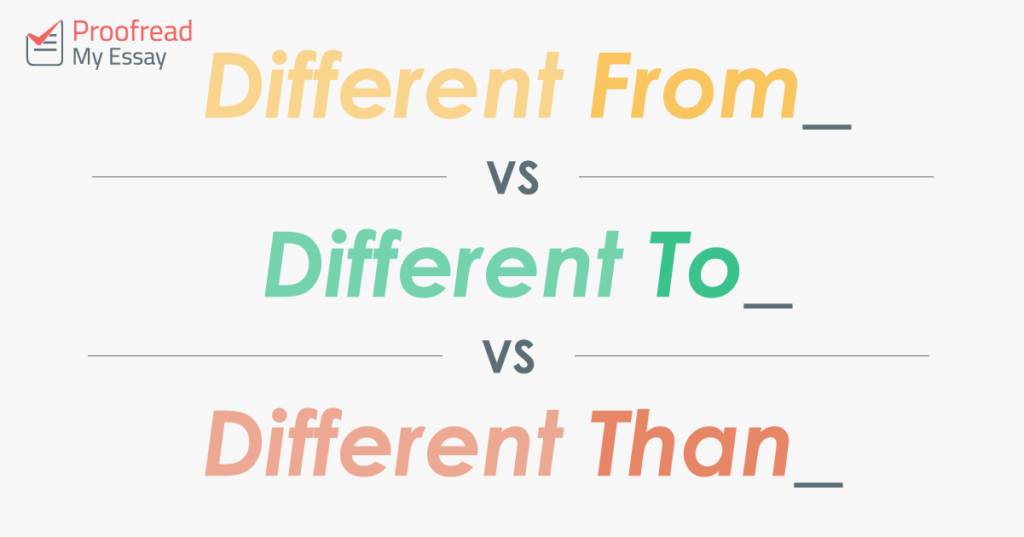Have you ever noticed that British English is different to American English? But wait! Is that last sentence written correctly? Or should it be ‘different from’ or ‘different than’ instead?
We’re asked this question fairly often here at Proofreading Towers, so we’ve prepared this quick guide to using the phrases ‘different from’, ‘different to’ and ‘different than’ in your written work.
Differing Options
‘From’, ‘than’ and ‘to’ can all be used as prepositions. This means they specify a relationship between words in a sentence. When they follow the word ‘different’, for example, all of these terms suggest a comparison between two things that are not alike. For instance:
Apples are different from oranges.
Here, ‘different from’ indicates that apples are oranges are distinct from each other. But we could also write this sentence using either ‘to’ or ‘than’:
Apples are different to oranges.
Apples are different than oranges.
All of these sentences mean the same thing, so most of the time these terms are interchangeable. But if you want your writing to be regionally specific, you may want to keep the following in mind.
(Photo: MicroAssist/flickr)
Regional Differences
The one big difference between these terms is that ‘different from’ and ‘different to’ are standard in British English. ‘Different than’, meanwhile, is primarily used in American English.
Generally, then, you will want to avoid ‘different than’ when writing for a British audience. If you are writing for an American audience, however, ‘different than’ is fine. But you might want to avoid ‘different to’, which is not typically used in American English.
Luckily, ‘different from’ is the most common of these phrases in all regional variations of English. You can therefore use it with confidence in any piece of writing. But if you do use ‘different to’ or ‘different than’, remember that they may be non-standard in some parts of the world (as illustrated below).
|
Phrase |
British English |
American English |
|
Different from… |
✓ |
✓ |
|
Different to… |
✓ |
✗ |
|
Different than… |
✗ |
✓ |
|
✓ = Standard, ✗ = Non-standard |
Summary: Different From, To or Than?
You can use any of ‘from’, ‘to’ or ‘than’ after the word ‘different’ to make a comparison. In this context, all these words do the same thing (i.e. link to two things that are being compared).
Find this useful?
Subscribe to our newsletter and get writing tips from our editors straight to your inbox.
In addition, ‘different from’ is far more common than ‘different to’ and ‘different than’ in all regional variations of English. As a result, we recommend using this term if you want to be sure your writing is always correct regardless of where in the world your readers may be.
